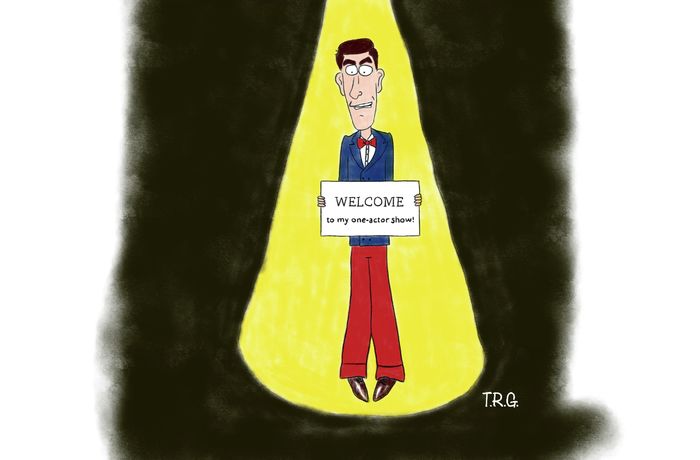To be or not to BME
Within the positive movement towards more opportunities for BME actors, Emma Mai-Yun Dawes considers the place that racially ambiguous actors hold

It was March 2020, and businesses in Newcastle’s Chinatown were going bust. In all the ugliness of the ‘Chinese virus’, with almost daily reports of physical and verbal abuse on East Asian communities, I remember being scared for my Pau Pau, scared for my mum, and scared for my older sister – she looks undeniably Chinese, whilst me and my younger sister, less so. A schoolmate once likened my mum to a printer running out of ink.
"A schoolmate once likened my mum to a printer running out of ink"
I know that it is wrong to reduce my mother’s culture to its oppression, but sometimes I cannot help but notice that abuse can force minorities into visibility. In my family, only my mum and eldest sister have ever walked down the street to sly hums of ‘The Siamese Cat Song’ from adolescent boys. I have never personally been a victim of racial prejudice. If anything, I have benefited from this system. Theatre and film opportunities for BME actors can feel like attempts at levelling the scales, like an antidote to the whitewashing of global media. Stepping onto that scale, I worry I might overbalance it somehow. Without suffering to earn it, I wonder if I deserve this support, and feel it might be better for me to simply step off.
I open a conversation on Latine representation with ADC regular, Rob Monteiro:
ME: Okay, let’s set the scene. You walk into the audition room, and you stand before the casting director. Who are you reading for – a Jet or a Shark?
RM: I don’t know… I’m no longer thinking about how I see myself, it’s about what they see me in.
ME: Who is ‘they’?
RM: ‘They’ is the casting director, but also what the audience will think… no one wants a scandal. At the end of the day, it’s about what people watching me are going to think.
Rob is here referring to how, on stage, you become vulnerable to an audience’s scrutiny, as they determine whether to be convinced by you, and by the performance of your character. Acting in a BME role, you hold up the flag of your identity, for an audience to believe in, or to call your bluff.
RM: I’m going to get on that stage, and someone is going to whisper, “where is he from?”
Performing as a racially ambiguous actor doesn’t come without its opportunities. You might be able to play the Jet and the Shark, Prospero and Caliban, Othello and Iago. However, very rarely do you get to be both. There is a binary choice that has to be made, and it is in that choice that the panic begins to set in.
Hannah (a Cambridge finalist) comments likewise, describing her anxieties about wearing her cheongsam to a college formal:
H: Have you ever applied to a casting agency? There is a section which asks you for your actual race. But right below, you are asked “What race do you appear as?’” And in that, there is no tick box for mixed race… it’s this box that they actually care about […] I don’t want people to look at me, and think “my culture is not your prom dress”. In my predominantly white secondary school, it was easy to think of myself as Chinese, because I knew I was different from the people around me. But when I’m surrounded by Chinese people, I know I’m mixed, but mostly, I think they see me as white… I guess I would rather just not rock the boat.
"Acting in a BME role, you hold up the flag of your identity, for an audience to believe in, or to call your bluff”
Most performers prioritise their audiences. It becomes less and less relevant how you identify, but what the audience will think – “no one wants a scandal”. But for the racially ambiguous actor, you might always feel that you are ‘rocking the boat’ on some level, no matter which character you play. And in spite of that vertigo, you present yourself on stage with a steady centre and a straight face, as you claim to take that character’s identity entirely as your own.
On Zoom last week, a director suggested that the other BME actors and I wear our cultural dress for the central scene of an upcoming production. Her suggestion prompted me to glance up to Rob’s smirking face in the top-right square; it mirrored my own amused but pained expression. I don’t know why, but the image of my white skin set against my mum’s red cheongsam felt to me like a violation of her.
This cheongsam presently hangs in the wardrobe next to my desk, and I’ve never tried it on before. I sit, and I wonder how it could possibly be wrong for me to wear my mother’s clothes. To be completely upfront, I’m still not sure – but I might see if it fits me tonight.
Want to share your thoughts on this article? Send us a letter to letters@varsity.co.uk or by using this form.
 News / Caius mourns its tree-mendous loss23 December 2025
News / Caius mourns its tree-mendous loss23 December 2025 News / Clare Hall spent over £500k opposing busway 24 December 2025
News / Clare Hall spent over £500k opposing busway 24 December 2025 Comment / The ‘class’ of Cambridge24 December 2025
Comment / The ‘class’ of Cambridge24 December 2025 Interviews / Politics, your own way: Tilly Middlehurst on speaking out21 December 2025
Interviews / Politics, your own way: Tilly Middlehurst on speaking out21 December 2025 Comment / Yes, I’m brown – but I have more important things to say22 December 2025
Comment / Yes, I’m brown – but I have more important things to say22 December 2025








